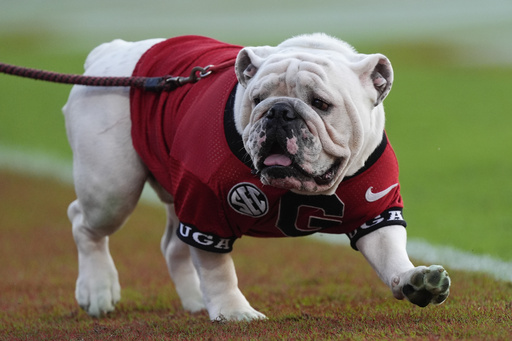
The highly anticipated Florida-Georgia football rivalry will be temporarily shifted from its usual Jacksonville venue while EverBank Stadium undergoes extensive renovations costing $1.4 billion.
In 2026, the showdown will take place at Mercedes-Benz Stadium in Atlanta, followed by a game at Raymond James Stadium in Tampa, Florida, in 2027. Beginning in 2028, the rivalry is slated to return to Jacksonville under a multi-year agreement.
The arrangement was first reported by Action Network, with Florida head coach Billy Napier confirming the news. “We’re looking forward to competing in Atlanta and Tampa, both of which are excellent venues managed by skilled operations,” Napier shared. “The financial benefits of this matchup are significant for both schools, making this a unique situation, and we are eager about this opportunity.”
Opting for neutral-site games known as “The World’s Largest Outdoor Cocktail Party” instead of hosting at campus locations largely comes down to financial incentives; both athletic departments stand to gain more revenue from playing at these larger, neutral venues.
Atlanta emerged as the clear choice for Georgia’s home game back in 2006, while Orlando, Miami, and Tampa also bid for Florida’s home game slot in 2027.
The annual clash has been held in Jacksonville since 1933, with the notable exception of a brief hiatus while the Gator Bowl was being renovated before the Jacksonville Jaguars began their inaugural season. The game was briefly moved to Gainesville in 1994 and Athens, Georgia, the following year.
Georgia coach Kirby Smart has previously advocated for returning the game to campus sites to enhance recruiting efforts since NCAA regulations limit contact with prospects at neutral locations, despite allowing the home team to set aside tickets for recruits.
However, Smart has softened his stance in recent discussions. “This topic has been up for consideration for quite some time, particularly with the renovation of Jacksonville in the works,” Smart remarked recently. “The involved parties navigated the situation effectively, and Jacksonville played a crucial role in making this beneficial for both universities. We’re thrilled about the prospect of playing in two different cities.”
The financial payout for Jacksonville is expected to increase significantly from the existing agreement, where each school currently receives around $3 million, including $1.5 million guaranteed as well as portions of ticket sales and concession profits.
Georgia takes home an additional $350,000 yearly to cover costs associated with charter flights, buses, and accommodations, while Florida secures $60,000 due to not requiring flights.
In comparison, a Florida home game can yield between $2 million and $5 million depending on the opponent, indicating that a home-and-home series would generate lower revenue over a two-year period than a neutral-site matchup.
“Both Kirby and I likely agree it would be fantastic to have a home-and-home series, yet we recognize the substantial revenue generated by continuing to host this event at a neutral site,” Napier added. “Financial considerations are crucial, and the revenue difference is considerable.”
“While Jacksonville has a rich historical significance for us, financial implications are equally important. I believe the neutral site will continue to present similar revenue prospects, ultimately guiding this decision.”
